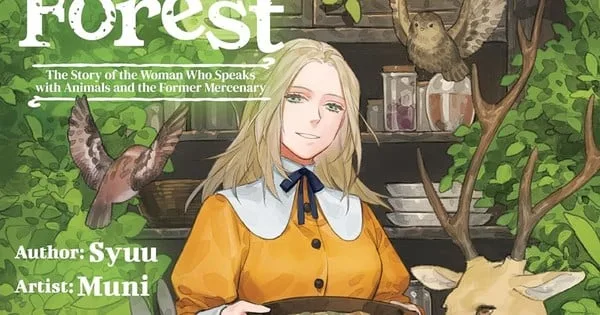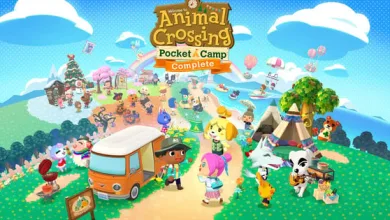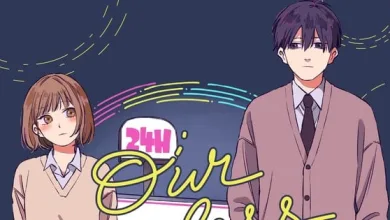Soup Forest Novel 1 Review – Review

Although cozy fantasy has arguably always existed as a subgenre, especially within the world of light novels where it crosses paths with iyashikei works, it’s only recently become known as its own special category of works. That makes Cross Infinite World‘s release of Syuu‘s novel Soup Forest very well timed; the quiet story fits beautifully within the definition of “cozy fantasy” while still also remaining its own take on the genre in a way that’s set to appeal to fans of both light novels and cozy fantasy alike.
That’s very deliberate on Syuu‘s part. In the afterword, they discuss what brought them to write the book, citing the start of a war as the major factor. (From the timing, it seems likely that they’re referring to Russia’s war on Ukraine.) The evidence of conflict in the real world made them want to create a story that was about healing hearts and bringing people together, and thus, Olivia and Arthur can both be read as stand-ins for everyone affected by war, hunger, disease, and the other pieces of man’s inhumanity to man. Arthur is a retired mercenary at only twenty-eight years old; he became a soldier when he was orphaned at fourteen and didn’t have any other way to support himself. Now, after half a lifetime of killing, he simply can’t face it anymore. He symbolizes the world-weary pain of people tired of fighting and those trying desperately to hold onto their humanity in the face of callous disregard for life. Olivia is the product of a different kind of cruelty. Born with the gift of psychic empathy, she was abandoned by her parents at five years of age when they bowed to pressure from her grandfather and sent her away so as not to taint the family with her strangeness. Olivia finds it difficult to trust humans, although kind people took her in, preferring to keep company with animals who are much more straightforward. If they try to hurt her, she at least understands why.
The novel’s plot is a quiet exploration of how Arthur and Olivia can touch each other’s hearts. Set almost entirely in the restaurant at the edge of the woods and in the forest itself, Soup Forest deals with a small cast of characters and focuses on their growth. For both of them, the main thrust is the gentle slide into love, and Syuu characterizes this differently. As the primary protagonist, Olivia gets the lion’s share of the plot, and her journey is a solid combination of interior and exterior action. More than Arthur, she’s not fully cognizant of the changes happening in her heart. As far as she’s consciously aware, she’s simply living her life as normal: she cooks for the restaurant (a different soup and side each day), helps when people need her herbal healing skills, and interacts with the animals in the forest outside, which also often comes down to healing and feeding them. When Arthur shows up in the rain one day, she simply offers him shelter because that’s what she does: take care of others while maintaining a bit of distance.
Arthur, however, is able to break through her carefully crafted wall. She recognizes a similar hurt in his heart to the one she’s been carrying around since she was five, and that slowly allows her to not only warm up to him but also to use her empathy abilities to grow closer to him. Olivia believes that she can only read a human’s heart if they are unguarded or firm in a belief or feeling, but with Arthur, she has more of a window into his soul. Although it takes her most of the novel to fully understand and accept it, the implication is that he is her perfect complement. Their romance isn’t passionate or even the driving force of the plot, but instead is a confirmation of their emotional scars and healing, something Olivia’s animal friends seem able to recognize long before she does.
Interestingly, part of her journey is understanding that she ishuman and that that’s okay; Olivia recalls telling her adoptive grandparents that she wishes she was born an animal rather than a person and that she even feels like it was a mistake that saw her incarnated as a human. Although Arthur doesn’t ever voice a similar feeling, we can see that his fourteen years of fighting and killing made him see himself as less than human. That helps to form a nice symmetry between both of their arcs, with both Olivia and Arthur realizing that there’s no one perfect way to be, only ways that help you to be comfortable with yourself and your existence. For both of them, that means a quiet exploration of what “human” actually is, and the side characters reflect that. Some are cartoonishly evil, others are impossibly good, and ultimately, the answer is somewhere in the middle, a consideration neither protagonist seems to have had. For every good person, there’s a bad one, and the truth is that Olivia and Arthur’s reach understands that their choices are what make them who they are.
The stakes, as is common for cozy fantasy, aren’t particularly high. That’s a feature rather than a detriment, and while there are moments of danger, the danger itself is less important than the way Arthur and Olivia react to it. Both Syuu‘s writing and Jordan Taylor‘s translation strike a balance between a slow-moving plot and internal action, but this will be much more appealing to readers who are already fond of the genre. If you’re looking for overpowered protagonists or dramatic romance, you’re not going to find it here. Muni‘s illustrations are similarly soft and gentle, and the overall vibe of the book is comfortable and reassuring.
Soup Forest is a story to read when you want to escape from the horrors of the news cycle. It’s truly cozy in the sense that it’s like reading under a warm blanket in front of the fire.
Source link
#Soup #Forest #Review #Review



